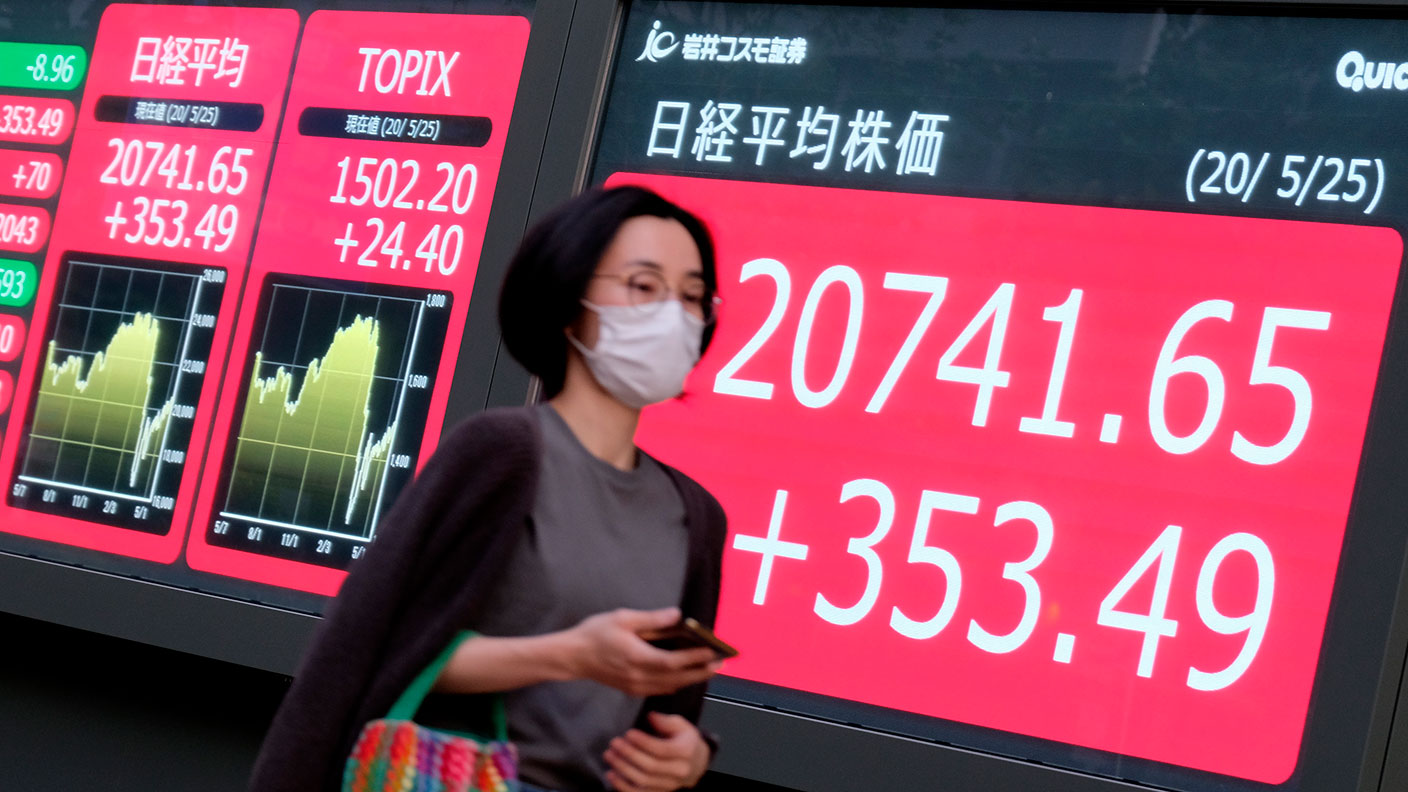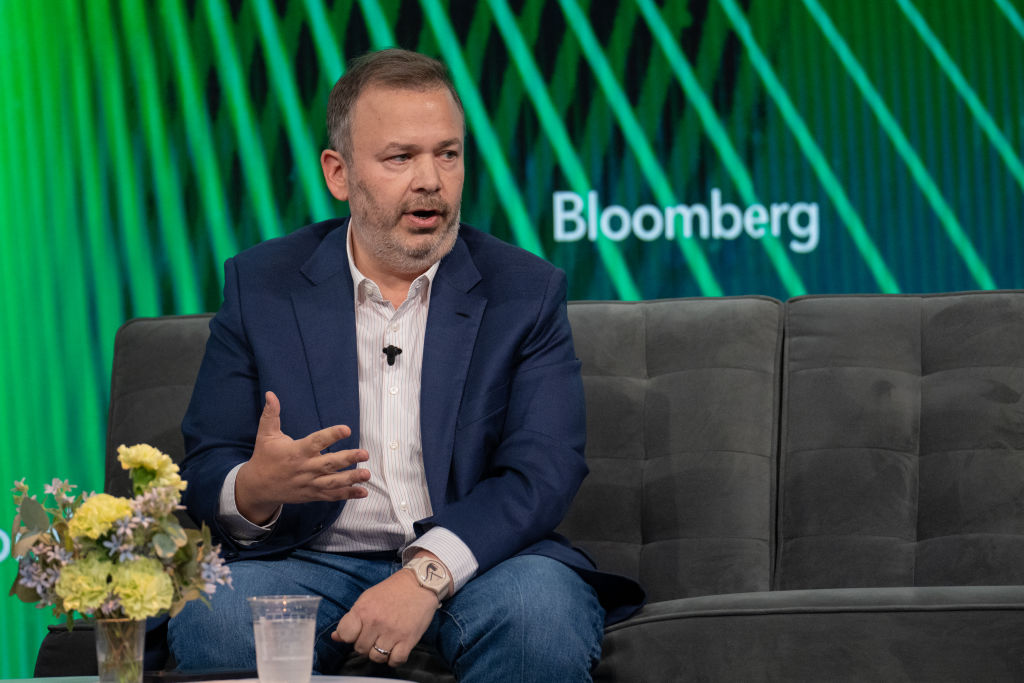How to use investment trusts to invest in specific countries and themes
Using specialist investment trusts can extend your horizons to the parts of the investment world that general funds do not reach.

In theory, a good global fund should be able to find the best opportunities for investment wherever and in whatever sector they are. In turn, owning a selection of global funds should reduce the risk of relying on a single management team and style.
In practice, few investors can resist the temptation to supplement a core of good quality global funds with specialist holdings. At worst, this can lead to a rag-tag portfolio of once-fashionable but now-struggling country and esoteric niche funds.
But at best, it can extend your horizons to the parts of the investment world that general funds do not reach – because the reality is that it’s difficult to have a streamlined, generalist and decisive management team, co-existing with the huge research effort and capacity needed to cover every opportunity in the world...
MoneyWeek
Subscribe to MoneyWeek today and get your first six magazine issues absolutely FREE

Sign up to Money Morning
Don't miss the latest investment and personal finances news, market analysis, plus money-saving tips with our free twice-daily newsletter
Don't miss the latest investment and personal finances news, market analysis, plus money-saving tips with our free twice-daily newsletter
Investing in Japan, wider Asia and emerging markets
The detailed knowledge of specialist fund managers should give them a clear advantage. In a globalised world, comparing companies across national and regional borders has become easier – but the language and culture of Japan remains a problem for global teams, for example.
Scottish Mortgage Trust has no exposure there, but Baillie Gifford has two specialist trusts with excellent records: Baillie Gifford Japan (BGFD), covering the whole market, and Shin Nippon (BGS), focusing on smaller companies (full disclosure: Merryn Somerset Webb, editor-in-chief of MoneyWeek magazine, is a non-executive director at this trust).
These trusts are mirrored by JP Morgan’s two Japanese trusts (JFJ and JPS), which are also growth orientated, though its smaller companies trust struggles to compete with Shin Nippon. Fidelity’s trust (FJV) also has an excellent record and the recently launched, value-orientated, gently-activist AVI Japan (AJIT) looks worth following.
Emerging markets also present a challenge for generalist trusts who rarely venture beyond China’s technology trusts and a handful of companies in Korea and Taiwan, all of which hardly qualify as emerging countries any more.
Emerging economies may be fast-growing – but there are problems with corporate governance, politics, corruption and currency volatility. Following companies and broader economic, regulatory and political factors in so many diverse countries is too time consuming and expensive for most global trusts.
Fortunately, investors are spoiled for choice with the specialists. JP Morgan’s £1bn trust (JMG) has a better record than its rivals at Genesis (GSS) and Templeton (TEM) over three and five years, but the latter two have both led the field in the past and could do so again.
The performance of Fundsmith’s trust (FEET) is improving after a long period of disappointment but BlackRock Frontier Markets (BRFI), investing in companies in countries which are not even in the emerging markets index, has had a dreadful time in the last three years after performing well before then.
Utilico Emerging Markets (UEM), meanwhile, yields 4.3% from a portfolio of utility and infrastructure stocks while JP Morgan has an income trust (JEMI) which yields 4.9% but has performed far less well than the aforementioned JMG.
Asia accounts for over 70% of the emerging markets index and offers a plethora of trusts. All include Singapore and Hong Kong companies in their investment universe but only one (Witan Pacific) includes Japan. Emerging economies are often thought of as dependent on the resources sector, but this is not true of Asia, which is one reason why Australia is often included.
Latin America, Russia, Africa and the Middle East are much more dependent on resources but only the first two regions have investment trusts focused on them: Baring Emerging Europe (BEE, 68% Russia) and BlackRock Latin America (BRLA). BRLA is flat over five years but BEE is up 38%. JP Morgan Russian Securities, however, has returned 109%.
JP Morgan also has single country funds covering China and India: its China fund (JCGI) has far out-performed Fidelity’s (FCSS) over five years (91% vs 41%) but the 2% return of its India fund (JII) lags the 23% of Aberdeen New India (ANII).
Vietnam has also been a popular destination for single country investors, with good reason given the 105% return over five years achieved by Vietnam Opportunity Fund (VOF) from investing in private equity and property as well as listed equities.
Continental European and US specialists
Continental Europe is well covered by global funds so there should be little reason to invest directly there except in a smaller companies specialist. Four of the seven specialists, however, have achieved outstanding returns over three and five years – European Opportunities (JEO, a Jupiter fund until Alex Darwell left, taking the trust with him); Fidelity European Values (FEV); Henderson Eurotrust (HNE); and BlackRock Greater Europe (BRGE).
A fifth, Baillie Gifford European (BGEU) has done exceptionally well since Baillie Gifford took over the management late last year. Smaller companies have significantly out-performed larger ones over five years, though not over three, which may provide an opportunity to jump in.
The performances of TR European (TRG) and JPM European Smaller Companies (JESC) have kept pace with the European small cap index at around 54% but Montanaro‘s trust (MTE) has more than doubled (full disclosure: Merryn Somerset Webb, editor-in-chief of MoneyWeek magazine, is a non-executive director at this trust also).
Given that North America accounts for well over half the MSCI World index, it is well represented in global funds, and the extraordinary out-performance of a small number of highly-rated mega-cap technology companies has made the S&P 500 a very hard index for any fund manager to beat.
It also means that the performance of the smaller companies index, the Russell 2000, has been dismal in comparison. Having reliably kept pace with the S&P 500 for many years, JP Morgan American (JAM) is now 20% behind over five years, though its sister trust, JP Morgan US Smaller Companies (JUSC) is 30% ahead of the Russell 2000.
Remarkably, Baillie Gifford has achieved the seemingly impossible with its US Growth Trust (USA), launched early last year. This has returned 43% over the last year, 29% ahead of the S&P 500, from a very growth-orientated portfolio.
Pershing Square, a £5.5bn activist fund now in the FTSE 100, has returned 46% over one year and 94% over three, yet still trades on a discount to net asset value of 32%. So even funds specialising in North America can justify an allocation.
Technology, commodities and other specialist areas
Investors wishing to top up their US exposure can also do so via trusts specialising in two of the most obvious sectors requiring expert knowledge – technology and healthcare, both sectors dominated by US companies.
Both Polar Capital Technology (PCT) and Allianz Technology (ATT) have returned over 200% over five years, though Allianz leads by 15%. Buying now, having missed those returns, would require considerable bravery, but earnings in the technology sector have only moderately lagged valuations.
The performance of healthcare trusts has been more sedate, but perhaps more sustainable. The £2bn Worldwide Healthcare Trust (WWH), launched in 1994, has returned 79% over five years, but multiplied 35-fold since launch. Its sister trust, Biotechnology Growth (BIOG) has returned over 60% in the last year but was negative over the previous four years. BB Healthcare (BBH) has done well over three years, returning 56%, but has lagged its rivals over one year.
Other sectors are sparsely populated by specialist trusts. BlackRock World Mining (BRWM) has a very volatile history but with commodity prices recovering, companies generating strong cash flow and moderately valued and a near 40% exposure to gold, could prove a bargain.
The record of Impax Environmental (IEM) shows that green investing doesn’t have to be at the expense of returns. TR Property (TRY) has a consistent record of out-performance from investing in UK and European property companies, supported by a yield of nearly 4%. Ecofin Global Infrastructure & Utilities (EGL) yields over 4% from a portfolio that has combined defensiveness with growth.
The risk of investing in specialist funds is that though they may be individually good investments, a portfolio full of them could, unwittingly, be heavily skewed in the direction of, say, emerging markets or technology. There is nothing wrong with this if it is a conscious decision – but beware of chasing currently popular fads and be prepared to be patient.
Get the latest financial news, insights and expert analysis from our award-winning MoneyWeek team, to help you understand what really matters when it comes to your finances.

Max has an Economics degree from the University of Cambridge and is a chartered accountant. He worked at Investec Asset Management for 12 years, managing multi-asset funds investing in internally and externally managed funds, including investment trusts. This included a fund of investment trusts which grew to £120m+. Max has managed ten investment trusts (winning many awards) and sat on the boards of three trusts – two directorships are still active.
After 39 years in financial services, including 30 as a professional fund manager, Max took semi-retirement in 2017. Max has been a MoneyWeek columnist since 2016 writing about investment funds and more generally on markets online, plus occasional opinion pieces. He also writes for the Investment Trust Handbook each year and has contributed to The Daily Telegraph and other publications. See here for details of current investments held by Max.
-
 The ‘mirror will’ flaw which could mean your savings end up with strangers – how to protect your legacy
The ‘mirror will’ flaw which could mean your savings end up with strangers – how to protect your legacyWriting a will lets you pass your wealth onto your loved ones. But couples with a so-called ‘mirror will’ could unintentionally leave their family exposed to being cut out.
-
 Saba comes for Edinburgh Worldwide’s board... again
Saba comes for Edinburgh Worldwide’s board... againSaba Capital Management has announced fresh plans to displace the board of Edinburgh Worldwide despite having been decisively beaten in a recent vote
-
 Halifax: House price slump continues as prices slide for the sixth consecutive month
Halifax: House price slump continues as prices slide for the sixth consecutive monthUK house prices fell again in September as buyers returned, but the slowdown was not as fast as anticipated, latest Halifax data shows. Where are house prices falling the most?
-
 Rents hit a record high - but is the opportunity for buy-to-let investors still strong?
Rents hit a record high - but is the opportunity for buy-to-let investors still strong?UK rent prices have hit a record high with the average hitting over £1,200 a month says Rightmove. Are there still opportunities in buy-to-let?
-
 Pension savers turn to gold investments
Pension savers turn to gold investmentsInvestors are racing to buy gold to protect their pensions from a stock market correction and high inflation, experts say
-
 Where to find the best returns from student accommodation
Where to find the best returns from student accommodationStudent accommodation can be a lucrative investment if you know where to look.
-
 The world’s best bargain stocks
The world’s best bargain stocksSearching for bargain stocks with Alec Cutler of the Orbis Global Balanced Fund, who tells Andrew Van Sickle which sectors are being overlooked.
-
 Revealed: the cheapest cities to own a home in Britain
Revealed: the cheapest cities to own a home in BritainNew research reveals the cheapest cities to own a home, taking account of mortgage payments, utility bills and council tax
-
 UK recession: How to protect your portfolio
UK recession: How to protect your portfolioAs the UK recession is confirmed, we look at ways to protect your wealth.
-
 Buy-to-let returns fall 59% amid higher mortgage rates
Buy-to-let returns fall 59% amid higher mortgage ratesBuy-to-let returns are slumping as the cost of borrowing spirals.
